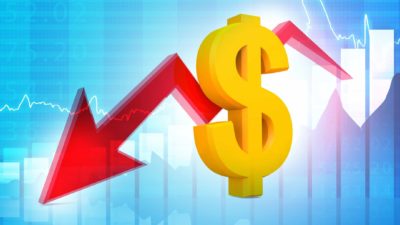When the Reserve Bank of Australia (RBA) resumed its interest rate hiking campaign earlier this month, investors and ASX shares arguably took it on the chin. A few months ago, most of us were hoping that the RBA's campaign to tame inflation would require no more rate hikes.
And then, when it became obvious that the RBA would resume its increases in November following a two-month hiatus, we grudgingly accepted that maybe the economy just needed one more nudge.
However, that assumption is looking naively optimistic today.
The RBA has just released its minutes from the November Melbourne Cup day meeting, which of course delivered that latest increase to the cash rate. And it doesn't look like the new RBA governor Michelle Bullock is of the mind to take her foot off the brakes.
The minutes start off by stating that the RBA's view remains that inflationary pressures have not gone off the boil, thanks to both the current global geopolitical situation, as well as the impending El Niño weather event:
The Israel-Hamas war had increased uncertainty about the global economic outlook. Members noted that the conflict could present an upside risk for global inflation if it were to lead to a disruption in energy supply from the region. Prices for liquified natural gas had already increased significantly following the shutdown of Israel's Tamar gas field.
Oil prices had been volatile since the beginning of the conflict but had not increased in a sustained way. Members also noted that the ongoing El Niño event presented an upside risk to global food price inflation.
And then there was this about the domestic Australian economy:
Turning to the domestic economy, members observed that inflation had continued to decline in year-ended terms in the September quarter. However, underlying inflation was stronger than expected a few months earlier and, on a quarterly basis, had picked up slightly.
When considered with other information, the assessment of the staff was that higher inflation reflected demand pressures in the economy being stronger than had been expected.
Doesn't exactly sound like the RBA is entirely comfortable with the current levels of inflation in the economy, does it? And higher inflation almost certainly will lead to more interest rate hikes. Need proof? The minutes conclude with this observation:
In turning to the policy decision, members noted that underlying inflation had been more persistent over the prior few months than had previously been expected…
Members agreed that whether further tightening of monetary policy is required to ensure that inflation returns to target in a reasonable timeframe would depend on how the incoming data alter the economic outlook and the evolving assessment of risks.
In making its decisions, the Board will continue to pay close attention to developments in the global economy, trends in domestic demand, and the outlook for inflation and the labour market. The Board remains resolute in its determination to return inflation to target and will do what is necessary to achieve that outcome.
This might come as a bit of a shock to ASX investors who might have been hoping that we'd seen the last RBA rate hike for a while.
So what would further interest rate rises in 2024 mean for ASX shares?
Outlook: What do higher interest rates mean for ASX shares?
Well, frankly it's just not good news for ASX shares if rates continue to rise next year. But this works on a few different levels. Firstly, the whole point of the RBA raising rates is to try and pull spending out of the economy. We have less cash to buy fancy food at Woolworths Group Ltd (ASX: COL), vinyl records at JB Hi-Fi Ltd (ASX: JBH) or a new TV-and-couch set at Harvey Norman Holdings Limited (ASX: HVN) if we have to put more towards our mortgage.
So this will obviously be a headwind to most ASX shares.
However, higher rates have an impact on the financial markets as well. If the cash rate rises, then it tends to precede the banks raising what they pay us to store money in term deposits and savings accounts. Not to mention mortgage offsets. There are many investors who put money into ASX shares when interest rates were at 0.1% because there weren't too many alternatives if we wanted a real yield.
But now you can get a safe 5% yield from a term deposit, many investors just don't want the added risk and volatility that shares come with. So this has the effect of sucking money out of the share market and into alternatives. In turn, this can depress share prices.
As such, most ASX investors won't relish the prospect of higher interest rates next year. But let's see what happens with inflation. The RBA has been wrong before with its interest rate outlook, after all.









